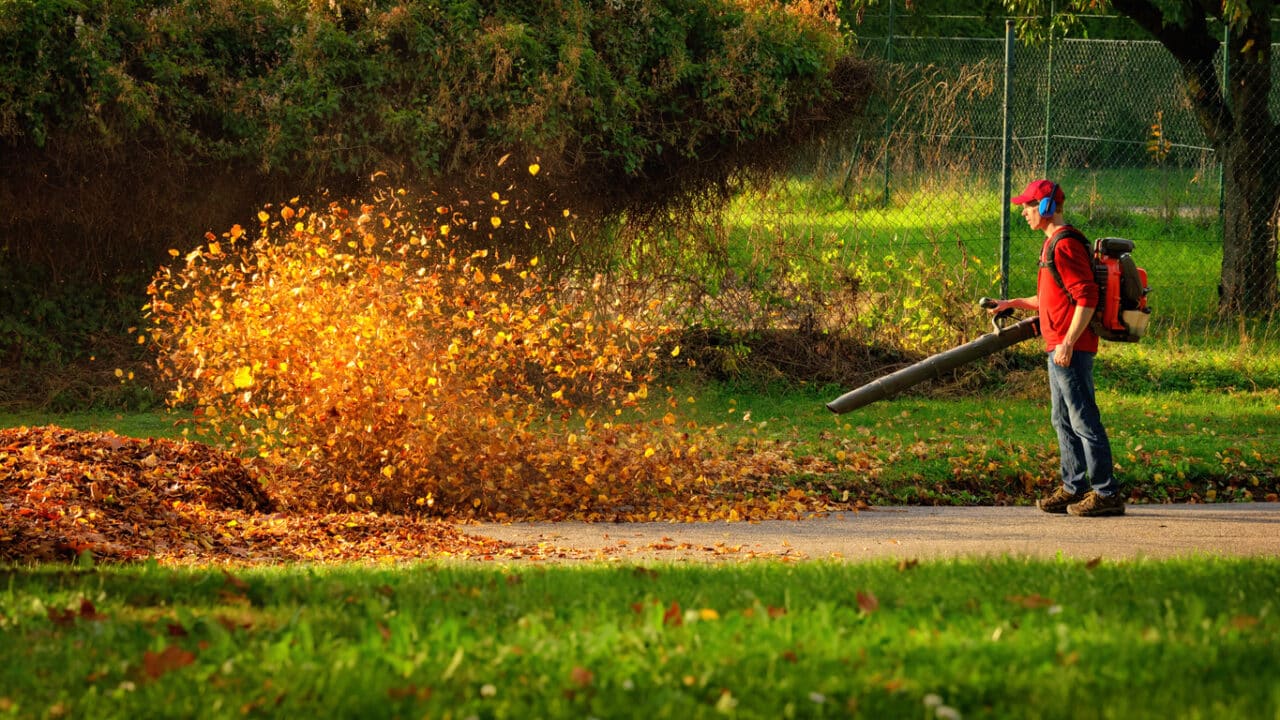With the arrival of autumn, yard work becomes a priority as you prepare for winter and manage the falling leaves. Many, however, forget that the tools used for tasks like mowing, leaf blowing and chainsawing can produce dangerously high noise levels, putting your hearing at risk. It’s essential to take steps to protect your ears while completing these tasks. Here’s how to do your fall yard work while safeguarding your hearing.
Hearing Risks from Yard Tools

Fall yard maintenance often involves using loud machinery that can potentially harm your hearing. Noise-induced hearing loss can occur with sounds starting as low as 70 dB, and anything above 85 dB poses a serious risk. The longer you are exposed to high decibel levels, the greater the danger. In some cases, hearing loss can happen suddenly after brief exposure to very loud noise.
Here are some common noise hazards during yard work:
- Lawnmowers and leaf blowers: These tools often operate at noise levels of 85-90 dB or more. Long-term exposure without hearing protection can lead to cumulative damage, especially for those already experiencing hearing loss.
- Chainsaws: Frequently used to prune trees or cut firewood, chainsaws can exceed 110 dB. Even brief exposure to such high levels of noise can cause immediate hearing loss.
- Other tools: Smaller equipment like hedge trimmers and weed whackers might not seem as loud, but their noise can still harm your hearing if used for long periods.
Protecting Your Hearing
To prevent hearing damage while doing your fall yard work, it’s important to follow some key precautions. Here are a few ways to complete your outdoor tasks safely:
- Wear hearing protection: Use foam earplugs, earmuffs, or custom-fitted hearing protectors to reduce your noise exposure. If you wear hearing aids, over-ear protection can both reduce noise and keep your devices securely in place.
- Choose quieter equipment: Whenever possible, opt for electric tools instead of gas-powered ones. For example, electric leaf blowers or lawnmowers are often quieter and still perform well, reducing the noise levels you’re exposed to.
- Take frequent breaks: Continuous exposure to loud sounds can take a toll on your ears. Make it a habit to take regular breaks, giving your ears time to recover from the loud machinery.
- Adjust hearing aids: If you wear hearing aids, make sure they’re adjusted properly for outdoor use. Many newer models come with noise-reduction settings that are useful when operating noisy tools. If you need assistance with the settings, consult your hearing specialist.
By following these steps, you can tackle your yard work this fall without putting your hearing at risk. For more advice on hearing protection or to schedule a hearing evaluation, reach out to Hampton Roads ENT ~ Allergy today.
